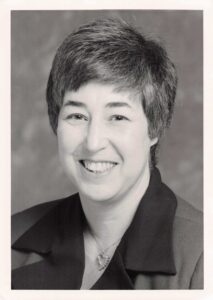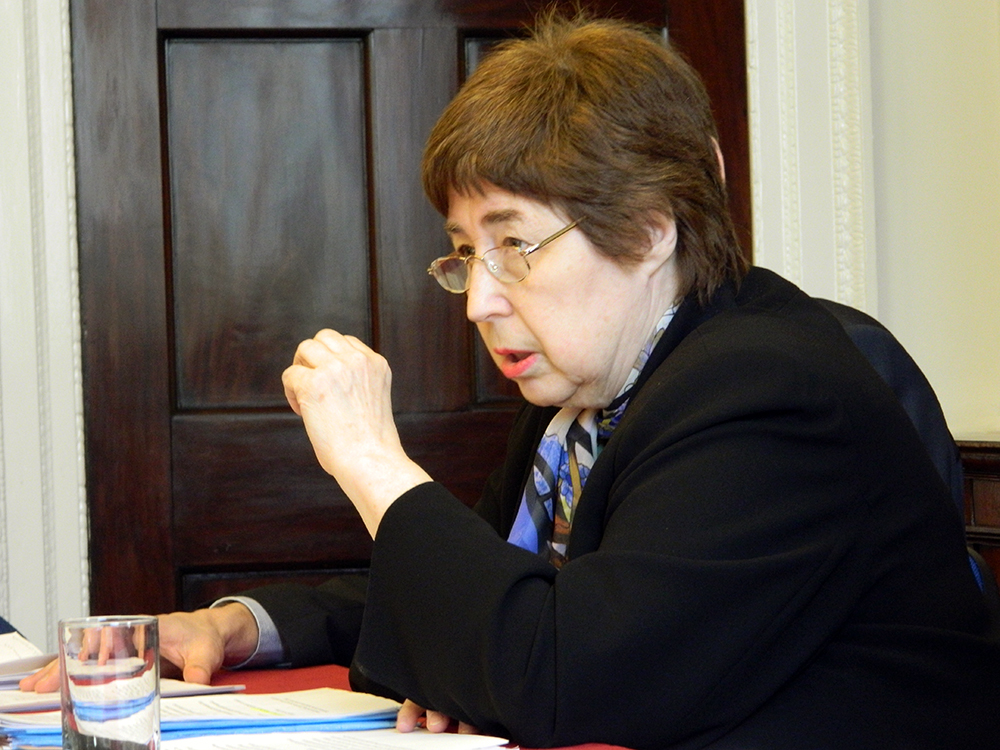
Felice Gaer Baran, a leading advocate of global human rights for decades, died on Nov. 9 after a battle with cancer. She was 78 years old.
Her career was marked by a history of opposing dictatorships and authoritarian regimes that violated the human rights of their citizens.
Since 1993, she served as director of the American Jewish Committee’s Jacob Blaustein Institute for the Advancement of Human Rights.
“Gaer’s wisdom, support, conviction and passionate concern for all humanity made her truly exceptional, and she will be deeply missed,” AJC said in a statement. “Throughout her career, in myriad roles, Gaer insisted that governments and the United Nations should consistently condemn the practices of tyrants and authoritarians and recognize that many forms of harm and inequality once considered ‘internal affairs’ of states as human-rights abuses.”
Ahmed Shaheed, who served as the U.N.’s independent monitor on human rights in Iran and the right to freedom of religion or belief, called Gaer’s contributions “legendary” and “a source of inspiration for everyone.”
Born on June 16, 1946, in Englewood, N.J., Gaer grew up in nearby Teaneck. She received a bachelor’s degree from Wellesley College; and a master’s degree and Ph.D., both in political science, from Columbia University’s Russian Institute (now Harriman Institute).
Starting at the Ford Foundation in 1974, Gaer worked for the human rights of Soviet Jewish refuseniks. From 1982 through 1991, she served as executive director for the International League for Human Rights, where she focused on Chile, Venezuela and Latin America.
Combating ethnic hate continued as a priority for Gaer as she worked to push the United Nations to recognize antisemitism, resulting in its inclusion in a 1998 anti-racism resolution passed by the U.N. General Assembly. In 1999, she joined the United Nations Committee against Torture, the first American and woman to have done so.
The Jewish Theological Seminary in New York City awarded Gaer an honorary doctorate in 2018.
Bertrand Ramcharan, a U.N. official and acting high commissioner for human rights from 2003-04, called Gaer a “pillar of the human-rights movement.”
She is survived by her husband, Henryk Baran; two sons; a brother; a sister; a son-in-law; and five nephews.


























